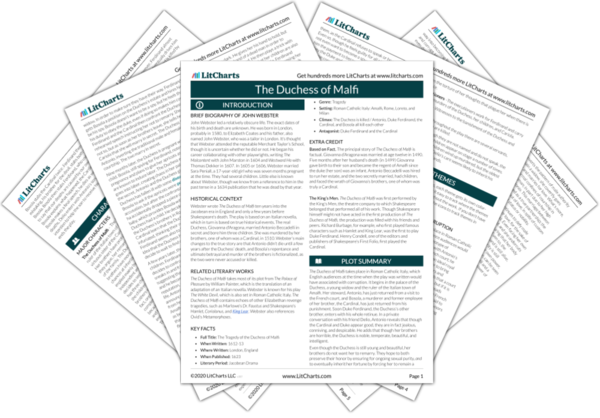Antonio’s joke that sleeping with the Duchess is work recalls the fact that he was (and technically still is) her steward. Antonio’s transformation imagery is essentially all from Ovid’s
Metamorphoses, in which women like Daphne are transformed for denying their lovers. Those who denied their lovers were transformed into barren and negative objects and plants, while those who were kind to lovers turned into fruit bearing trees, beautiful flowers, and generally positive things. Antonio’s allusion to Ovid is meant to convince Cariola to marry someone.
